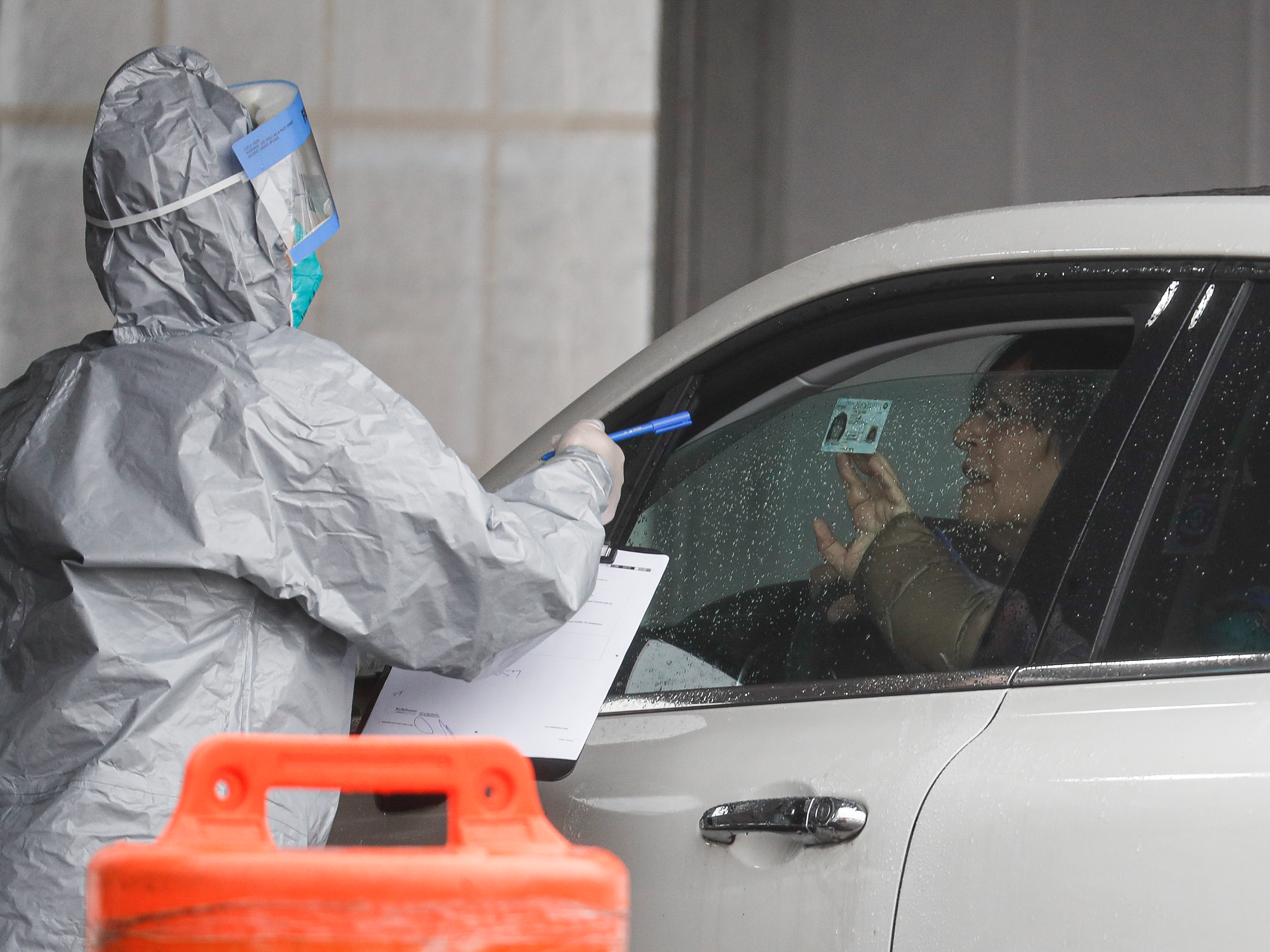- Cities in Washington, Colorado, New York, Texas, and Connecticut have opened drive-through stations to test more people for coronavirus.
- President Trump said Friday that the administration was looking to open up more of these stations.
- Drive-through testing stations can help protect healthcare workers from direct exposure to coronavirus and get more people tested more quickly.
- Testing capacity has been limited in the US because of delays and missteps in the development and rollout of the tests.
- Visit Business Insider’s homepage for more stories.
This week, cities in California, Colorado, Connecticut, Minnesota, New York, Texas, and Washington, have opened drive-through coronavirus testing stations.
“We’ve been in discussions with pharmacies and retailers to make drive-through tests available in the critical locations identified by public-health officials,” President Donald Trump said in a news conference on Friday. “The goal is for individuals to be able to drive up and be swabbed without having to leave your car.”
Trump said this drive-through testing would likely expand in the coming weeks across the country, and that the administration was in talks with private-sector partners such as CVS, Target, Walgreens, and Walmart to roll out a plan.
The announcement marked a shift from what Robert Redfield, director of the Centers of Disease Control and Prevention, told a House committee on Wednesday: that the agency did not plan to implement drive-through testing, since “we’re trying to maintain the relationship between individuals and their healthcare providers.”
But as the virus has spread in the US, doctors, public-health officials, and patients have expressed frustration about the lack of widespread, easily accessible testing.
According to the COVID Tracking Project, a test-tracking resource from journalists at The Atlantic and the founder of a medical-data startup, only about 18,400 tests have been run in the US. They noted, however, that those figures may be incomplete because of different states' policies on reporting negative tests.
"Other countries are testing much more broadly than we are," William Schaffner, an infectious-disease specialist at the Vanderbilt University School of Medicine, told Business Insider in February. "We are trotting along while they're racing along."
The US has so far confirmed more than 1,800 cases of coronavirus across 46 states. At least 41 people have died.
The US seems to now be taking its cue on drive-through testing from South Korea, which can conduct 10,000 tests per day, many of which are 10-minute drive-up tests.
Healthcare workers in personal protective gear take a driver's temperature, check for breathing difficulties, and swab the passenger to get a sample that the worker sends to a nearby lab.
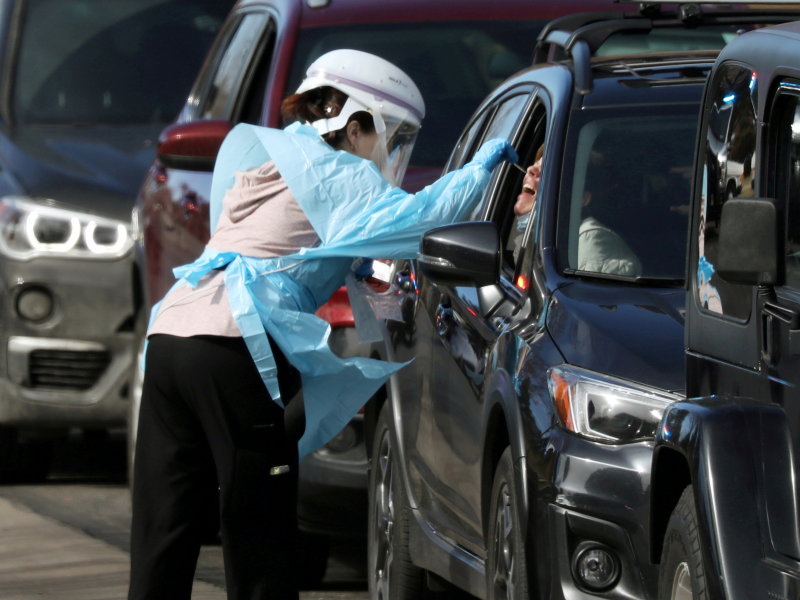
South Korean officials said that the facilities can cut testing time by as much as a third, Reuters reported.
"We can diagnose a lot of people in a short period of time, so we can effectively control the coronavirus," Dr. Seo Wan-seok, vice-director of Yeungnam University Medical Center, told Reuters. "And secondly, we can minimize the infection."
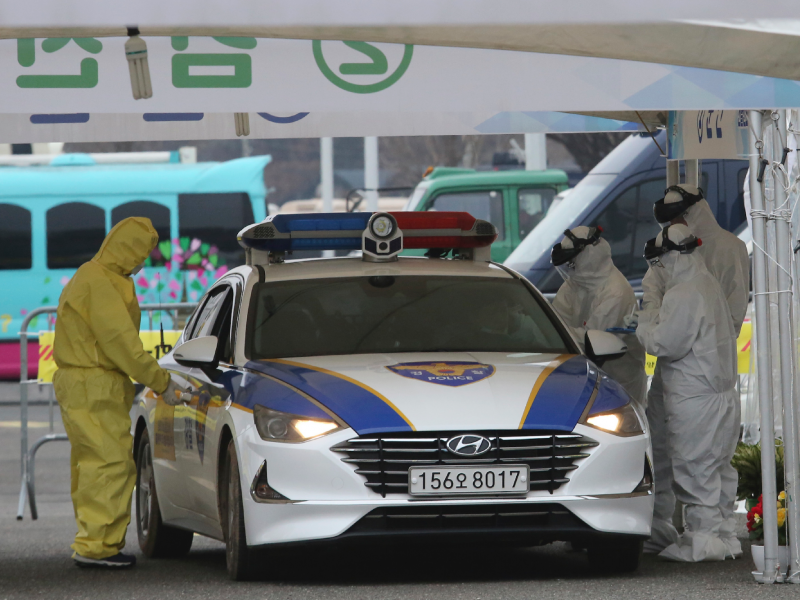
Where drive-through coronavirus testing stations are opening in the US so far:
San Francisco, California
On Wednesday, one of the California's largest healthcare providers, Kaiser Permanente, opened a pop-up drive-through testing site at its San Francisco hospital. Patients in the Kaiser network can get tests if they meet CDC criteria for testing and have a doctor's note. Patients are required to self-quarantine as they await results.
Denver, Colorado
On Wednesday, the Colorado Department of Public Health and Environment opened a drive-through testing site in Denver. Those being tested are required to have a photo ID and a doctor's note. The state has recorded 72 cases in total. According to Denver's ABC affiliate, proof of insurance is not required, and the tests should be free, but there are long wait times. Officials said they would limit the number of cars in the drive-up queue to 100 to 150.
Hartford, Connecticut
Connecticut is also trying out drive-through testing in Hartford.
"We're trying it out on a location on campus," Dr. Ajay Kumar, chief medical officer for Hartford Hospital, told the Hartford Courant. Six people in Connecticut have tested positive for COVID-19.
Rochester, Minnesota
Rochester is where the Mayo Clinic is based, and the the nonprofit medical center has set up a drive-through screening site for patients there. The patients must be approved during a pre-screening phone call, and once that's done, they're directed to the location and given a free coronavirus test.
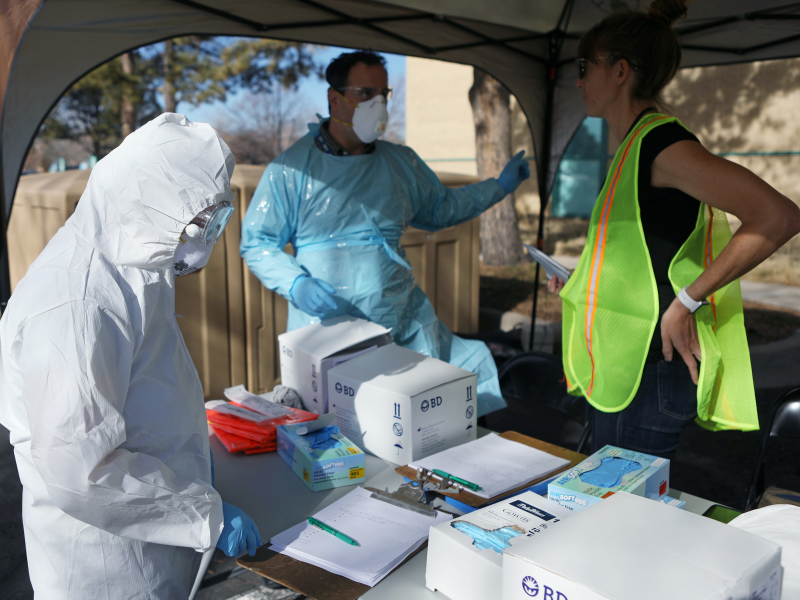
New Rochelle, New York
A drive-through testing station opened in New Rochelle, located in Westchester County, on Friday. The station is capable of testing 200 people a day, New York Gov. Andrew Cuomo said, and could build capacity up to test 500. Westchester County has 158 cases, while New York state has over 400.
Cuomo said the station is open to Westchester residents, but that patients have to make an appointment first. Vulnerable populations, including people with underlying conditions or those who are elderly, will be given priority.
"Drive-through testing means people in this community can call a telephone number, make an appointment, and then can come to be tested and literally drive through the testing facilities," Cuomo said. "It's not only faster and easier, it's also smarter and safer because you're not exposing people who may be positive."
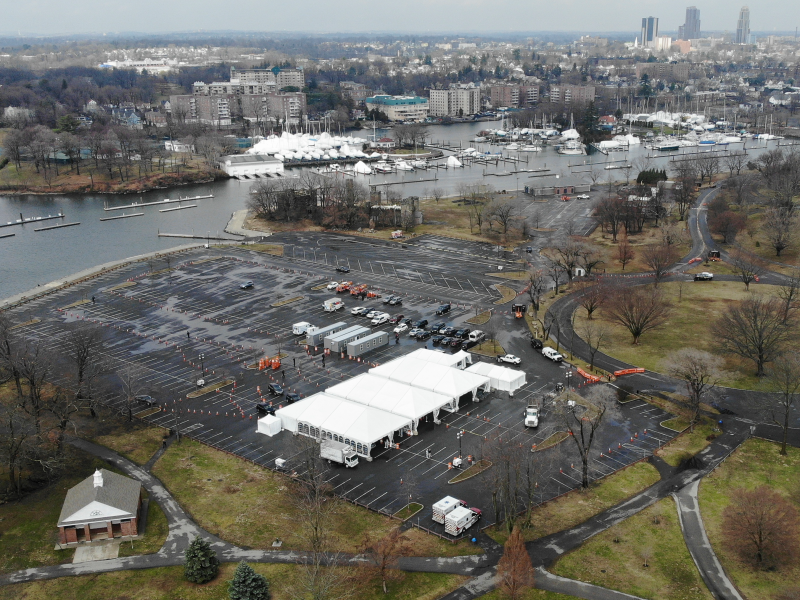
San Antonio, Texas
On Friday, Texas Gov. Greg Abbott said a drive-through testing station would open in San Antonio, and that more would open in Dallas, Houston, and Austin afterwards. He did not provide specifics about when the lab would open or its testing capacity, but said the station would be for first responders, healthcare workers, operators of critical infrastructure, and high-risk patients.
Seattle, Washington
The University of Washington Medical Center has begun to test 40 to 50 people per day using a drive-through station, local CBS affiliate KIRO reported. The testing site is only available to university employees, students, and nearby first responders for now.
- Read more:
- 80% of COVID-19 patients experience 'mild' symptoms - but that likely still involves a fever and cough
- Live updates: What to know about the coronavirus in the US
- Live updates: Everything we know about the coronavirus pandemic
- What to do if you think you might have the coronavirus: Call before going to a hospital
